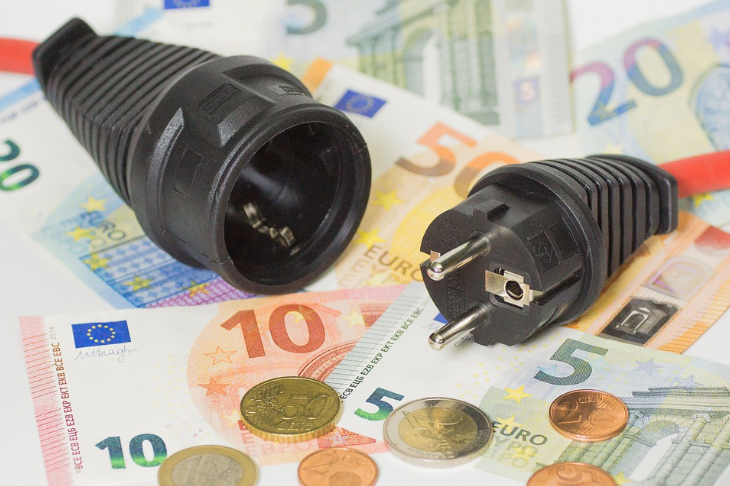(First published on March 12, 2018)
Anna Marhold
Energy dual pricing has been a contentious topic in the WTO for decades, but now the focus is on its harmful environmental effects. Dual pricing encourages wasteful consumption of fossil fuels and displaces cleaner sources of energy. There are several ways in which the WTO can and should contribute to reforming and phasing out fossil fuel subsidies, and tackling dual pricing practices is one of them.
What is energy dual pricing and why is it harmful?
Energy dual pricing is a practice through which resource-endowed states sell their energy resources at significantly lower prices on the domestic market – for instance, through their monopolistic state trading enterprises – as compared to the price on the export market. The main reason for states to maintain dual-pricing policies is to provide their domestic energy consumers with cheap energy and their intensive industries with low-cost fuel inputs. Russia, Ukraine and the OPEC members, notably Saudi Arabia, are some of the countries that have used dual-pricing policies over the last decades.
It is debatable whether dual-pricing policies are WTO inconsistent per se, but it is certain that these policies are trade-distorting and have an impact on international trade. More importantly, considering the way dual-pricing policies are administered, they can fit into the broader category of environmentally harmful fossil fuel subsidies. Dual pricing allows setting the domestic price of energy from fossil fuels artificially low: countries that maintain these policies thus encourage the burning of “cheap” fossil fuels at below global market prices, to the detriment of switching to cleaner forms of energy. In this way, dual pricing undermines the competitiveness of green energy and contributes to increased CO2 emissions in the atmosphere.
Constraining dual pricing under existing WTO rules
Although the WTO was primarily created to deal with matters that affect cross-border trade, the global trade body can, and should, contribute positively to eliminating fossil fuel subsidies, including dual pricing and its negative impacts on the environment. For instance, a WTO member may raise a case in dispute settlement if its domestic industry suffers significantly from another WTO member’s dual-pricing policies that result in cheap energy inputs for competing industries.
If administered in a way that restricts quantitative exports of the energy resource, dual-pricing measures may fall foul of Article XI.1 of the GATT, which prohibits quantitative import and export restrictions on goods. GATT Article XVII on State Trading Enterprises (STEs) could also serve as a basis for a potential claim, as an STE of a WTO member maintaining dual pricing policies may be found to behave in a discriminatory manner.
More importantly, there is also a good argument to be made that dual-pricing practices constitute prohibited or actionable subsidies – Article 3 and 5 of the Subsidies and Countervailing Measures Agreement (ASCM). This would depend on whether the dual-pricing measure fits the definition of Article 1 ASCM. As an example, the government provision of cheaper energy inputs for energy intensive industries could be considered a “government provision of goods and services”.
Considering the case law already in existence, the Anti-Dumping Agreement (ADA) is perhaps an even more straightforward tool in countering the negative impact of dual pricing. It could be argued that dual pricing is a case of “reversed input dumping”; in other words, that goods which benefit from cheap energy inputs – by means of below-market energy prices – are dumped on the market of the importing country (for example steel products) due to cheap domestic inputs. At present, there are several such cases pending in the WTO: European Union – Cost Adjustment Methodologies and Certain Anti-Dumping Measures on Imports from Russia andEU – Anti-Dumping Measures on Certain Cold-Rolled Flat Steel Products from Russia.
While environmental concerns may not be the primary motive for a dual-pricing case in WTO dispute settlement, it may have positive knock-on effects.A dispute settlement case would certainly attract attention to the necessity of phasing out dual-pricing policies. It would also send a strong signal that these policies are not immune to being challenged in the WTO.
Moreover, such a move could back recent efforts to put the important issue of fossil fuel subsidy reform on the WTO radar. In fact, during the WTO’s Eleventh Ministerial Conference (MC11), held recently in December 2017, a group of WTO members issued a ministerial statement about the need to reform fossil fuel subsidies, seeking to advance discussion in the WTO on achieving ambitious and effective disciplines for fossil fuel subsidies, including through enhanced transparency and reporting.
Inspiration from EU free trade agreements
Beyond existing rules, WTO members should consider revisiting the negotiation of a prohibition of dual pricing within the WTO legal framework. This could be part of larger efforts to reform subsidy rules. Although efforts to include a prohibition on dual pricing have been unsuccessful in the past, momentum has been created in view of climate change mitigation commitments and the UN Sustainable Development Goals.
Moreover, the recent accomplishments by the EU serve as a successful example of tackling dual pricing: the topic of dual-pricing prohibitions has been raised in several stages of Transatlantic Trade and Investment Partnership (TTIP) negotiations. More importantly, an actual prohibition of dual pricing has been taken up in the trade-related energy chapter of the recent EU–Ukraine Deep and Comprehensive Free Trade Agreement.
Creating policy space to support green energy
Aside from using the multilateral trading system to curb dual pricing, its negative environmental effects can be offset by creating more policy space for green energy. For this, it is essential to redraft and rethink current subsidy rules in a sophisticated manner.
The WTO could learn from the options provided by the EU rules on state aid: the Commission Guidelines on State Aid for Environmental Protection and Energy 2014-2020 offer detailed instructions to EU member states on how to design their support for green energy. The goal of the guidelines is to propose a market-based approach towards green energy support schemes, while at the same time ensuring that these schemes remain in line with EU State aid law. The WTO could develop similar guidelines for its members, thereby ensuring that members design their green energy support schemes in a WTO-consistent manner.
Moreover, state aid rules provide a set of accepted exceptions set out in the General Block Exemption Regulation (GBER). The regulation declares certain elaborate categories of state aid towards green energy as being compatible with the internal market. These options could serve as a model for WTO members when considering the wider reform of subsidy rules.
Forward action
The EU examples may serve as an inspiration for longer-term solutions within the WTO framework. At present, apart from exploring the options under existing rules, it is crucial that WTO members continue to push for including the topic of fossil fuel subsidy reform on the WTO’s agenda. The recent ministerial statement on fossil fuel subsidy reform is a good start, and follow-up actions are now needed to take reform efforts forward. Most importantly, the demandeurs of fossil fuel subsidy reform will need to continue stressing the importance of fossil fuel subsidy reform in view of climate change mitigation.
—————————-
This contribution was originally published as a blog for the International Centre for Trade and Sustainable Development, Geneva, and is available through this link. It is derived from the paper Fossil Fuel Subsidy Reform in the WTO: Options for Constraining Dual Pricing in the Multilateral Trading System commissioned by ICTSD and authored by Anna Marhold. It is part of the E15 engagement track through research and policy dialogues on fossil fuel subsidies.



